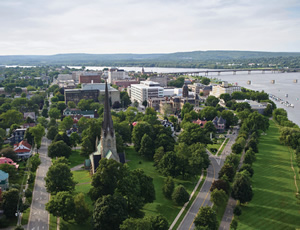Given the complex and dynamic nature of rural communities, how should health research be conducted, health services provided, and health policy developed?
Anecdotal evidence suggests that rural communities are in a perpetual state of demolition, with a reduction in services, closure of hospitals, loss of physicians, etc. As a population declines (or fails to grow), how does a government continue to support a 20-bed hospital facility? With limited opportunity for families or spouses, how do small villages retain a family physician? How are prenatal and postnatal care provided when there may only be 2-3 births per year? These questions cannot be answered from an urban-normative lens, where uniform policies and programs are applied to each community.
For health researchers and practitioners, addressing the above points may require getting out of one’s comfort zone. For health policymakers, this may mean that policies need to be more flexible and less prescriptive, with allowance for adaptation and failure, as promoted in complex systems and antifragile research for eHealth implementation in Northern Sweden.
For quantitative researchers (my own domain), this shift may require involving rural residents in research design, analysis, and interpretation, and spending time living and working in the communities under study. There may be instances where the quantitative data is insufficient or where findings don’t match with theory. In these cases, the lived experience of rural residents and the ‘thick’ knowledge that comes from understanding the communities under study can assist.
 One logical extension when considering this perspective of rural communities and health systems is that parts of the system can’t be viewed in isolation. One can’t examine hospitalization rates without considering access to primary care, which can’t be considered without looking at recruitment and retention, which requires an understanding of community resilience. Similarly, hospitalization rates are influenced by the social demography of the underlying population, which in rural communities may be related to colonization of indigenous populations, regional economic trends, internal migration patterns, and even shifts in international immigration.
One logical extension when considering this perspective of rural communities and health systems is that parts of the system can’t be viewed in isolation. One can’t examine hospitalization rates without considering access to primary care, which can’t be considered without looking at recruitment and retention, which requires an understanding of community resilience. Similarly, hospitalization rates are influenced by the social demography of the underlying population, which in rural communities may be related to colonization of indigenous populations, regional economic trends, internal migration patterns, and even shifts in international immigration.
To address this, our research lab and international collaborators have made this type of rural research a priority. We explicitly integrate a diversity of perspectives from multiple locations. We’ve done this through our funded research projects and published books and require this for our trainee scholars through our Free Range program.
Our research focusses on specific areas of rural health, including healthcare access for young women, high health system users, eHealth provision, youth health, and changing demographics of rural communities.





